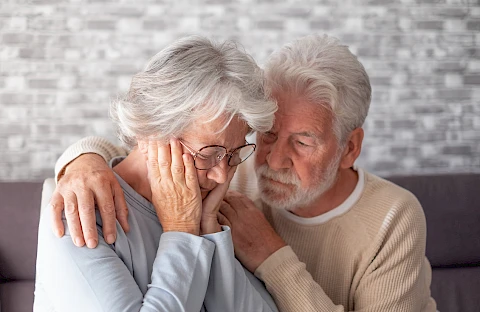
Alzheimer's Disease is a complex condition that affects millions of people worldwide. Raising awareness is crucial, especially during World Alzheimer's Month, as it can help more people understand this disease and support those who are affected. Senior caregivers, in particular, need to know how to look out for signs of Alzheimer's and make sure their loved ones can get the care they need.
What Is Alzheimer's Disease?
Alzheimer's Disease is a type of dementia that causes problems with memory, thinking, and behavior. It is a degenerative brain disorder that worsens over time.
Symptoms and Stages
Alzheimer's Disease progresses through different stages, each with its own set of symptoms. In the early stage, individuals may experience mild memory loss, difficulty recalling recent events, and misplacing objects. As the disease advances to the middle stage, symptoms become more pronounced, including increased difficulty with language and speaking, challenges in recognizing friends and family, and confusion about time and place. In the late stage, severe memory loss, difficulty in communication, and dependence on others for daily care become apparent.
Who Is Most Affected?
Alzheimer's primarily affects older adults, with most people diagnosed being 65 and older. However, it can also affect younger people, albeit less commonly. Genetics play a significant role in the risk of developing Alzheimer's. Those with a family history of the disease have a higher chance of developing it themselves.
Certain lifestyle choices and environmental factors also contribute to the risk. Poor diet, lack of exercise, and smoking can increase the chances of developing Alzheimer's. It's important to maintain a healthy lifestyle to potentially reduce the risk of developing this disease.
Future Projections
The number of people affected by Alzheimer's is expected to rise significantly in the coming years. With an aging population, more families will face the challenges of this disease. This increase will have a substantial impact on healthcare systems, stretching resources and increasing demand for medical care, home assistance, and specialized facilities.
Early detection and ongoing research are crucial in managing Alzheimer's. Early diagnosis can help in managing symptoms more effectively, while research aims to find better treatment options and, hopefully, a cure for this debilitating disease.
Resources for Support and Information
Several national organizations provide valuable information and support. The Alzheimer's Association offers a 24/7 helpline (1-800-272-3900) and a wealth of online resources. Many online communities and support groups provide emotional support and practical advice. Websites such as ALZConnected offer forums for caregivers and people with Alzheimer's to connect and share experiences.
When to Seek Medical Attention
It's important to recognize early warning signs of Alzheimer's. If you notice frequent memory lapses, confusion about familiar tasks, or difficulty in recalling words, it may be time to consult a doctor. A medical diagnosis can confirm whether these symptoms are due to Alzheimer's or another condition. Early diagnosis allows for better management and planning.
If you or a loved one is experiencing memory concerns, start by scheduling an appointment with your primary care physician. They can refer you to a specialist for further evaluation. Discuss your symptoms openly and ask about tests and treatment options.
Get More Support for Seniors With Alzheimer's
Understanding Alzheimer's Disease is vital as more families face its challenges. Knowledge about symptoms, who is most affected, and future projections can help in preparing and managing this condition. Don't hesitate to seek help if you or a loved one shows signs of Alzheimer's. Early diagnosis and treatment can make a significant difference.
For professional Alzheimer's and dementia care services, Senior Helpers Glendale can help. We offer support and services for residents in Glendale, Peoria, Phoenix, Luke Air Force Base, and Tolleson. Contact us today to learn more.